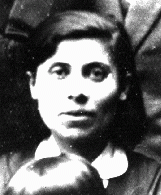<< Previous | Displaying results 301-325 of 6707 for "" | Next >>
-
Paul Matasovski
ID CardPaul was one of three children born to Jewish parents. They lived in a small city with a large Jewish population in central Moldavia. Paul's Ukrainian-born father had been stationed in Romania during World War I, and chose to remain there rather than return to Ukraine after the 1917 Russian Revolution. 1933-39: Paul's household observed the Jewish holidays. He loved Passover with its special meals and the opportunity to show off new clothes. On the radio his family heard about the Nazis in Germany; in…
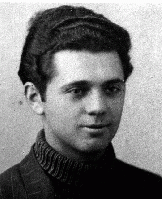
-
Matvey Gredinger
ID CardMatvey was the youngest of three children born to a Jewish family. The Gredingers lived in the town of Vertujeni, which was located in Bessarabia, a region of Romania. His father was a kosher butcher, preparing meat, especially chicken, for sale in his kosher shop. Matvey attended a Jewish school where he studied Jewish history and Hebrew. 1933-39: The Gredingers heard stories from other towns about antisemitic groups, especially the League of National Christian Defense, harassing and sometimes attacking…
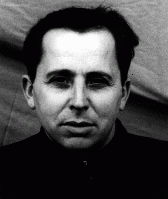
-
Eva Gredinger
ID CardEva was one of three children born to Jewish parents in Vertujeni, a Bessarabian town that was 90 percent Jewish. Eva attended a public school. Her family was religious, attending synagogue every day. Eva's father made his living as a kosher butcher, preparing chicken according to Jewish dietary laws. 1933-39: In 1936, when Eva was 15 years old, her family moved to Vysoka, where she later got a job as a seamstress. Vysoka was very different from her hometown. There were only about 15 Jewish families in…
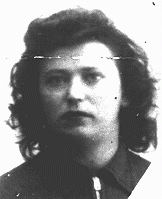
-
Edith Fuhrmann Brandmann
ID CardEdith's village of Kriesciatik was located on the border between Romania and Poland. Her Jewish parents owned a large ranch where they raised cattle and grew sugar beets. They also owned a grocery store. Edith had a brother, Jacob, and a sister, Martha. At home the family spoke Yiddish and German, and Edith learned Romanian after she began school. 1933-39: Edith's village was by a river, and she spent summer days by the water with her friends, swimming and playing. Her mother would pack her bread and…
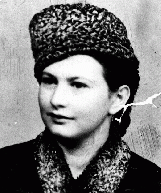
-
Max Gutmann
ID CardMax was raised in the Romanian town of Radauti, a trading and woodworking center near the Ukrainian border. The Gutmanns had a traditional Jewish home, and Max's father was on the board of directors of the local Jewish community. Max's father dealt in grain, feed, and livestock and he was a purveyor of horses for the Romanian military. 1933-39: Max's pony, Lisa, was kept in his family's stables with the other horses. The secondary school he attended was semi-private; it was governed by the state, but each…
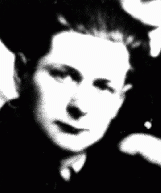
-
Erika Neuman
ID CardErika was born in Znojmo, a town in the Czech region of Moravia with a Jewish community dating back to the 13th century. Her father was a respected attorney and an ardent Zionist who hoped to immigrate with his family to Palestine. In 1931 the Neumans moved to Stanesti, a town in the Romanian province of Bukovina, where Erika's paternal grandparents lived. 1933–39: In Stanesti, Erika attended the public school as well as the Hebrew school, which her father had helped to found. She loved to play with her…
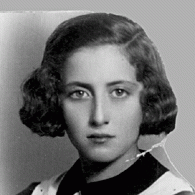
-
Maria Orlicka
ID CardMaria was born to a poor family in the industrial town of Jaworzno, not far from Krakow, in southwestern Poland. Both of Maria's parents worked. Like her parents, Maria was baptized in the Roman Catholic faith. 1933-39: Maria took care of the house when her parents were working. She was 11 years old when the Germans invaded Poland on September 1, 1939. German troops reached Jaworzno that same month. Jaworzno was in an area of Poland that became formally annexed to Germany. 1940-44: The Germans arrested…
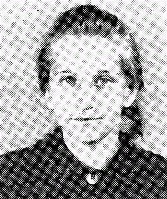
-
Janusz Piotrowski
ID CardJanusz was the eldest of four children born to Catholic parents in Plock, a town located in a rural area north of Warsaw. His father was an accountant. Janusz attended local schools, and became active in scouting. 1933-39: Janusz went to Warsaw to study civil engineering. On September 1, 1939, the Germans began bombing Warsaw. One week later, all able-bodied men who had not been mobilized were directed to retreat east. On September 17, Janusz was 90 miles from the Romanian border. That night, the Soviets…
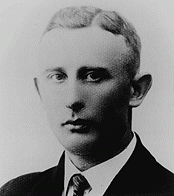
-
Wladyslaw Piotrowski
ID CardWladyslaw was born to Catholic parents in Russian-occupied Poland. He grew up in Plock, a town located in a rural area north of Warsaw. Wladyslaw married in 1918 and he and his wife, Marie, raised four children. 1933-39: Wladyslaw worked as a bookkeeper, and then as an accountant for a local farmers' cooperative. In 1931 he was sent to the town of Wyszogrod to close a failing branch of the farmers cooperative. A year later, he organized a new, successful cooperative in Wyszogrod with local farmers and…
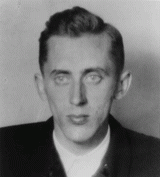
-
Wladyslaw Tadeusz Surmacki
ID CardBorn to Catholic parents, Wladyslaw attended schools in Warsaw and earned a degree in survey engineering in Moscow in 1914. After fighting in World War I, he commanded a horse artillery division in Warsaw, worked for Poland's Military Geographic Institute, and taught topography courses. He started a family in 1925, and after he retired from the army in 1929 he founded a surveying company. 1933-39: When war with Germany became imminent in the summer of 1939, Wladyslaw volunteered to fight but was rejected…
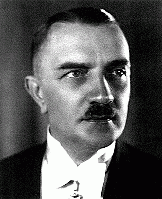
-
Gertruda Nowak
ID CardGertruda was one of five children born to a poor family in the rural community of Zegrowek in western Poland. The Nowaks lived near Gertruda's grandparents. Like their parents, Sylwester and Joanna Nowak, the Nowak children were baptized in the Roman Catholic faith. 1933-39: As a young girl, Gertruda helped with chores around the house, and after school she looked after her younger brothers and sisters. She was 9 years old when the Germans invaded Poland on September 1, 1939. Nazi troops reached Zegrowek…
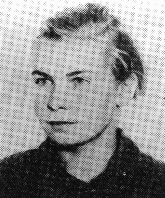
-
Michal Scislowski
ID CardMichal was one of two children born to Catholic parents living in Siedlce, a large town some 65 miles east of Warsaw. Michal's father was an intelligence officer in the Polish army. Because his duty station frequently changed, the family lived in several towns along the Polish-Soviet border. As a child, Michal enjoyed photography and was active in the boy scouts. 1933-39: Michal's family was living in Wilejka, a town near Vilna, when the Germans attacked Poland on September 1, 1939. The Soviet army…
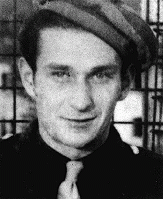
-
Pawel Zenon Wos
ID CardPawel was the oldest of four children born to Roman Catholic parents in Poland's capital of Warsaw. Pawel's father had worked for the Polish merchant marine before starting his own textile business in 1930. The family moved to a comfortable apartment near the Royal Castle and the Vistula River. Pawel excelled in sports, including basketball and tennis. His favorite sport was rowing. 1933-39: In May 1939 Pawel became an army reserve officer and went to training camp near Augustow. On the morning of…
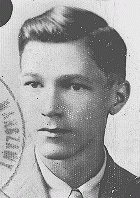
-
Henny Schermann
ID CardHenny's parents met in Germany soon after her father emigrated from the Russian Empire. Henny was the first of the Jewish couple's three children. The family lived in Frankfurt am Main, an important center of commerce, banking, industry and the arts. 1933-39: After the Nazis came to power, they began to persecute Jews, Roma (Gypsies), men accused of homosexuality, people with disabilities, and political opponents. In 1938, as one way of identifying Jews, a Nazi ordinance decreed that "Sara" was to be…
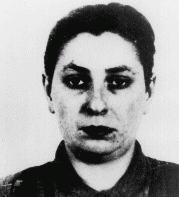
-
Julian Noga
ID CardAlthough Julian's Polish Catholic parents had immigrated to the United States before World War I, his mother had returned to Poland and Julian was born in a village not far from the large town of Tarnow in southern Poland. Julian was raised in Skrzynka by his mother on her four-acre farm while his father remained in the United States. 1933-39: At 16 Julian left home and worked as a dishwasher in an elegant Jewish club in downtown Tarnow. When the Germans invaded in September 1939, he returned to his…
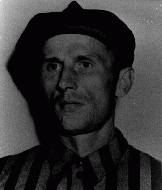
-
Hanandel Drobiarz
ID CardHanandel was raised with his three brothers and sisters in the town of Kozlow, where his family sold grain and livestock. The family was religious, and they observed the Sabbath and all Jewish holidays and dietary laws. When Hanandel was 5, he began studying Hebrew, the Bible, prayers, and Jewish history. 1933-39: At age 14 Hanandel was apprenticed to his uncle in Sosnowiec as a tinsmith. He worked for his uncle during the day and attended trade school at night. When he graduated from trade school he…
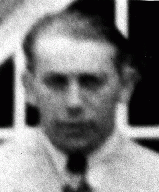
-
Bernhard Liebster
ID CardBernhard, who was from a religious Jewish family in the Polish town of Oswiecim, emigrated as a young man to Frankfurt, Germany. There he married Bertha Oppenheimer from the nearby town of Reichenbach. They settled in Reichenbach where they were one of 13 Jewish families. Bernhard worked as a shoemaker, and the couple raised three children. 1933-39: In a corner of his living room, Bernhard ran a small shop specializing in orthopedic shoes. Antisemitism was growing in Germany, but the townspeople of…
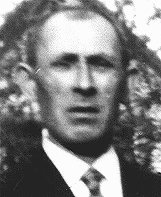
-
Johannes M. Lublink
ID CardJohannes was born to Christian parents and had three brothers and three sisters. His father sold coal for heating systems. By 1933, Johannes was also a coal distributor. Like many other Dutch citizens, Johannes did not approve of Hitler's policies. He especially objected to Hitler's persecution of Jews and Jehovah's Witnesses. 1933-39: Hitler's coming to power in Germany was a threat to all of them. In 1936, Johannes became a Jehovah's Witness. His mother was also a Witness and, by 1938, one brother and…
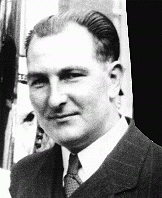
-
Johann Stossier
ID CardJohann was born to Catholic parents in the part of Austria known as Carinthia, where he was raised on the family farm. Johann enjoyed acting and belonged to a theater group in nearby Sankt Martin, which also happened to have a Jehovah's Witness congregation. He became a Jehovah's Witness during the late 1920s, actively preaching in the district around Sankt Martin. 1933-39: Johann continued to do missionary work for the Jehovah's Witnesses even after this was banned by the Austrian government in 1936. The…
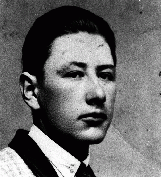
-
Walther Hamann
ID CardWalther was born in the state of Thuringia in east central Germany. Though his parents were Lutheran, Walther became a Jehovah's Witness in 1923. After becoming a master baker and confectioner in 1924, Walther worked in various coffeehouses in Plauen, Magdeburg and Duesseldorf. In 1928 he graduated from a professional school. He married and had two sons. 1933-39: In 1933 Walther became a pastry-making manager at the Cafe Weitz on Duesseldorf's Koenigsallee. The Gestapo arrested him at the cafe in 1937…
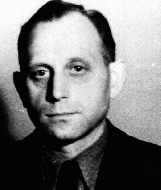
-
Sabina Szwarc
ID CardSabina grew up in a Jewish family in Piotrkow Trybunalski, a small industrial city southeast of Warsaw. Her family lived in a non-Jewish neighborhood. Her father was a businessman and her mother was a teacher. Both Yiddish and Polish were spoken in their home. In 1929 Sabina began public school, and later went on to study at a Jewish secondary school. 1933-39: On September 1, 1939, Germany invaded Poland. Four days later, German troops streamed into Sabina's city. After one month of occupation, her father…
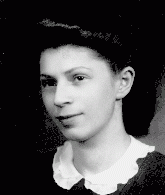
-
Gitla Zoberman
ID CardGitla was the second-youngest of four girls born to observant Jewish parents. They made their home in Sandomierz, a predominantly Catholic town on the Vistula River. Her father owned a small bookstore across from the town hall, selling school texts and novels. Gitla attended public school before enrolling in a Catholic girls' high school. In the winter, Gitla enjoyed skating on the Vistula. 1933-39: In 1937 Gitla moved to Katowice, a large town on the Polish-German border. There, she enrolled in a…
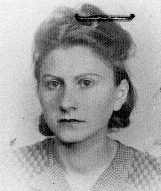
-
Lore Heumann
ID CardThe younger of two girls, Lore was born to Jewish parents in a village close to the Belgian border. The Heumanns lived above their general store. Across the street lived Lore's grandfather, who kept horses and cows in his large barn. When Lore was a year old, her family moved to the city of Lippstadt. The Lippe River flowed beyond the large garden in back of their house. 1933-39: When Lore was 6, her family moved to the nearby city of Bielefeld, where she entered public school. A year later, she and her…
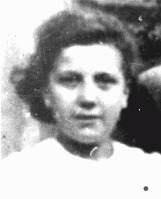
-
Shulamit Perlmutter (Charlene Schiff)
ID CardShulamit, known as Musia, was the youngest of two daughters born to a Jewish family in the town of Horochow, 50 miles northeast of Lvov. Her father was a philosophy professor who taught at the university in Lvov, and both of her parents were civic leaders in Horochow. Shulamit began her education with private tutors at the age of 4. 1933-39: In September 1939 Germany invaded Poland, and three weeks later the Soviet Union occupied eastern Poland, where Shulamit's town was located. Hordes of refugees…
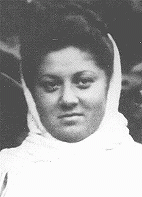
-
Channa Morgensztern
ID CardChanna and her husband and five children lived 35 miles east of Warsaw in the small predominantly Jewish town of Kaluszyn. Channa's husband, Jankel, was employed as a clerk in the town hall. After Channa's children reached school age, she helped her mother run a newspaper kiosk in town. 1933-39: Germany has invaded Poland, and Channa's hopes that Kaluszyn wouldn't be in the line of fire have been shattered. First, a German plane flew over their town and dropped a bomb on people waiting in line outside a…
